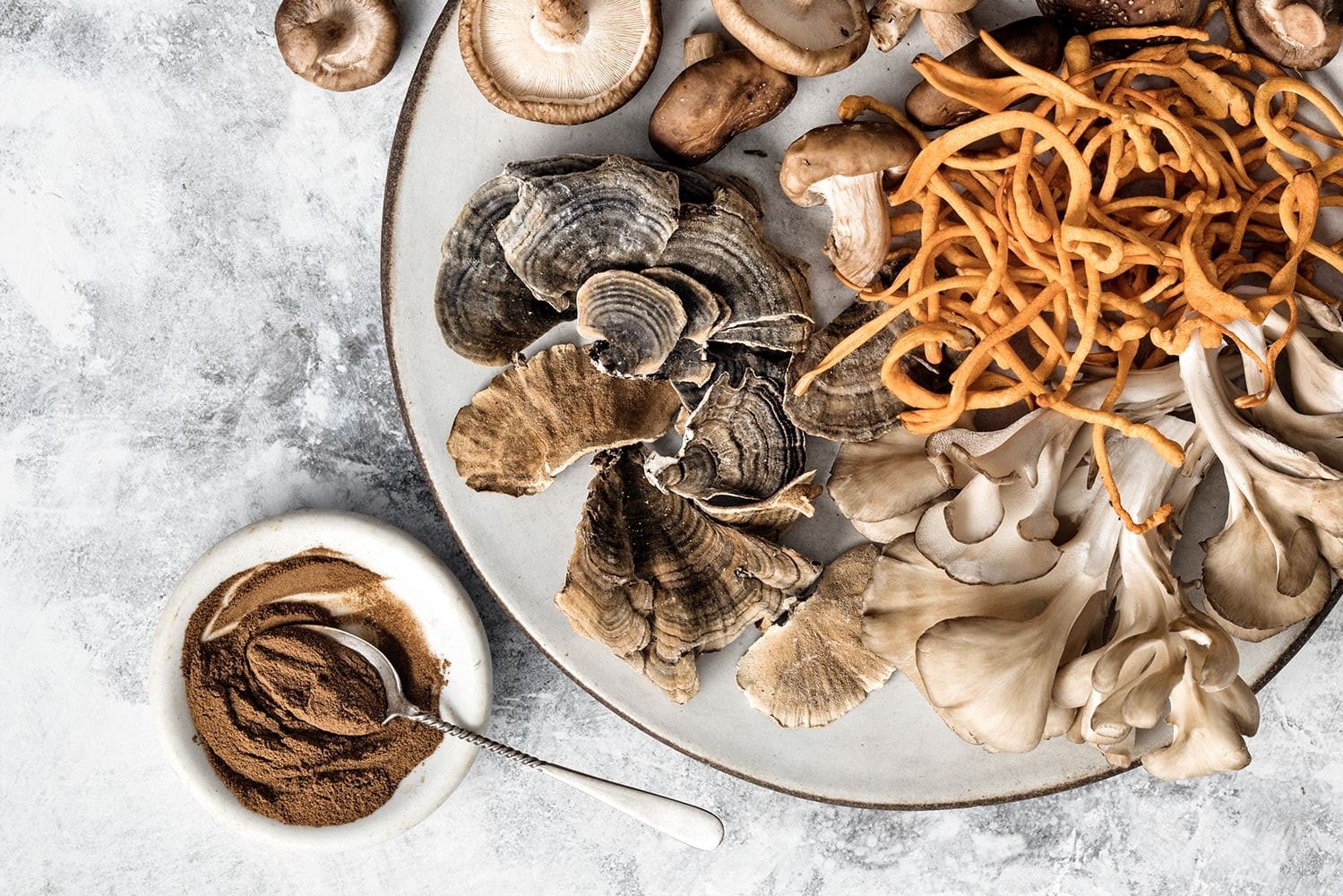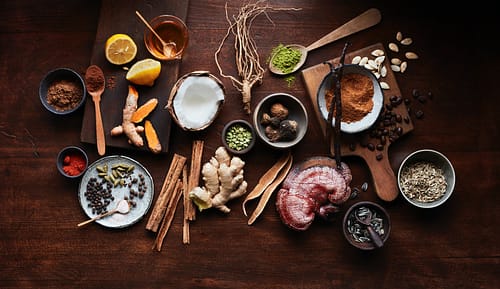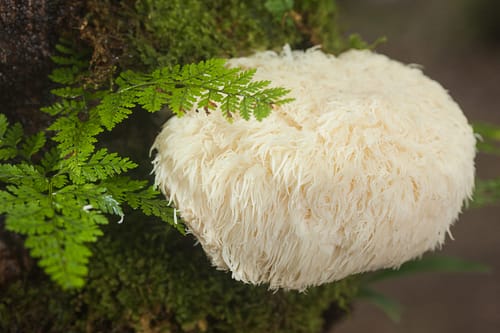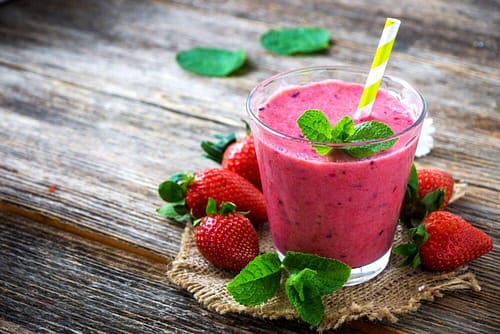Eating mushrooms was thought to provide long life to the ancient Egyptians. Modern scientists exploring the medical capabilities of the organism are beginning to yield some exciting discoveries, even if their scientific technique was probably not totally correct.
These mushrooms have been valued by humankind as a culinary wonder and folk medicine in Oriental practices.
Medicinal mushrooms are those that are used to treat illnesses. For hundreds of years, they’ve been utilized to treat the illness, primarily in Asia. Medicinal mushrooms are being used to treat lung and cancer disorders. They have been allowed as a supplement to regular cancer therapies in Japan and China for more than 30 years. Mushrooms have been used safely in these nations for a long time, either alone or in combination with radiation or chemotherapy.
More than 100 different varieties of mushrooms are used to cure cancer in Asia. Ganoderma lucidum (reishi), Trametes Versicolor or Coriolus Versicolor (turkey tail), Lentinus edodes (shiitake), and Grifola frondosa are some of the more prevalent ones (maitake).
Mushrooms are being researched to see how they influence the immune system and whether or not they can stop or reduce tumor growth or destroy tumor cells. Certain chemical substances, such as polysaccharides (beta-glucans) found in turkey tail mushrooms, are considered to boost the immune system’s ability to fight cancer.
Recent developments in mushrooms as anti-cancer therapeutics
Turkey Tail and Polysaccharide-K Questions and Answers (PSK)
What exactly is a turkey tail?
Turkey tail is a fungus that grows on dead logs all around the world. It’s called turkey tail because its brown and tan rings resemble turkey tail feathers. Trametes versicolor or Coriolus versicolor is its scientific name. Yun Zhi is the name given to it in traditional Chinese medicine. It’s known as kawaratake in Japan (roof tile fungus). Trametes mushrooms come in a variety of shapes and sizes. Without the use of proper testing, distinguishing between turkey tail and other forms of Trametes mushrooms can be difficult.
For many years, turkey tail has been utilized in traditional Chinese medicine to treat respiratory ailments. When combined with normal cancer therapy, the turkey tail has been used in Japan to enhance the immune system.
What is PSK?
The most well-known active ingredient in turkey tail mushrooms is polysaccharide K (PSK). PSK is a fungus that has been licensed for use in the treatment of cancer in Japan.
Have any laboratory or animal studies been done using PSK?
Tumor cells are employed in laboratory investigations to see if a chemical is likely to have anticancer properties. Animal studies are conducted to determine whether a medicine, operation, or therapy is safe and effective in animals. Before a chemical is evaluated on humans, laboratory and animal investigations are conducted.
PSK’s effects on the immune system, particularly natural killer cells and T-cells, have been studied in both laboratory and animal investigations. For more on PSK laboratory and animal research, see the Laboratory/Animal/Preclinical Studies section of the health professional version of Medicinal Mushrooms.
Have any studies of PSK been done on people?
Patients with stomach cancer, breast cancer, colorectal cancer, and lung cancer have all been investigated using PSK. Since the mid-1970s, it has been utilized as adjuvant treatment in thousands of cancer patients. PSK has been safely used in individuals in Japan for a long period, with minimal negative effects documented.
Gastric cancer
PSK has been shown in studies to help heal immune cell damage induced by chemotherapy and improve the immune system in patients with gastric (stomach) cancer.
Studies of PSK as adjuvant therapy for gastric cancer include the following:
In a randomized clinical study conducted in Japan between 1978 and 1981, 751 patients who had stomach cancer surgery were involved. Patients were given chemotherapy with or without PSK after surgery. Patients who underwent chemotherapy plus PSK survived longer on average than those who got chemotherapy. The researchers believe that based on the number of granulocytes and lymphocytes in a patient’s blood, it may be feasible to forecast which patients will benefit the most from PSK.
In 1994, Japanese research followed 262 patients who underwent successful stomach cancer surgery and were given either chemotherapy or PSK. Patients who got chemotherapy plus PSK had a lower risk of recurrence and survived longer than patients who did not. PSK treatment has few negative side effects. The researchers concluded that the following surgery to remove the malignancy, stomach cancer patients should get PSK and chemotherapy.
The data of eight randomized controlled trials including 8,009 individuals who had surgery to remove stomach tumors were merged in a study published in 2007. Patients in the studies were given chemotherapy with or without PSK after surgery. The findings imply that patients who had chemotherapy and PSK following surgery lived longer.
Breast cancer
A product prepared using turkey tail was administered to a small group of patients with breast cancer following radiation therapy in phase I clinical study supported by the National Institutes of Health. In the immune system, there was an increase in natural killer cells and other cancer-fighting cells.
Colorectal cancer
Studies of PSK as adjuvant therapy for colorectal cancer include the following:
PSK’s influence on the immune system in individuals with stage II or stage III rectal cancer was investigated in a randomized clinical study. Chemotherapy and radiation treatment were given to the patients, with or without PSK. PSK boosted the number of cancer-killing immune cells and exhibited anticancer effects in radiation-treated tissue, according to this study.
Patients who underwent PSK were less likely to develop recurrent cancer and survived longer than those who did not, according to an assessment of findings from three trials including 1,094 patients with colorectal cancer.
Lung cancer
Studies of PSK as adjuvant therapy for patients with lung cancer include the following:
Patients treated with PSK with radiation treatment with or without chemotherapy survived longer in five nonrandomized clinical studies.
Chemotherapy with or without PSK was evaluated in six randomized clinical trials in lung cancer patients. Patients who underwent PSK benefited in one or more aspects, including immunological function, body weight, well-being, tumor-related symptoms, and longer life, according to the research.
Have any side effects or risks been reported from turkey tail or PSK?
There have been few side effects reported in studies of PSK in Japan.
Questions and Answers About Reishi
What is reishi?
Reishi is a fungus that grows on living trees. Ganoderma lucidum or Ganoderma sinense are the two names given to it by scientists. Ling Zhi is the name given to this group of mushrooms in traditional Chinese medicine. They are known as Reishi in Japan. G. lucidum is known as Chizhi in China, whereas G. sinense is known as Zizhi.
There are many different species of Ganoderma mushrooms, and it can be difficult to distinguish between the medicinal and non-medicinal varieties.
In East Asia, reishi has been used as a medicinal for a long time. It was considered to help people live longer, stay younger, and have more energy. It’s being utilized in China to help cancer patients who are undergoing chemotherapy or radiation therapy improve their immune systems.
How is reishi given or taken?
Reishi is usually dried and taken as an extract in the form of a liquid, capsule, or powder.
Have any laboratory or animal studies been conducted using reishi?
Tumor cells are employed in laboratory experiments to evaluate a novel drug and see whether it has any anticancer properties. Animal studies are conducted to determine whether a medicine, operation, or therapy is safe and effective in animals. Before a chemical is evaluated on humans, laboratory and animal investigations are conducted.
The effects of the main compounds in reishi mushrooms, triterpenoids and polysaccharides, on cancers, particularly lung cancer, have been studied in both laboratory and animal trials. Information about laboratory and animal research employing reishi may be found in the Laboratory/Animal/Preclinical Studies section of the health professional version of Medicinal Mushrooms.
Have any studies of reishi mushrooms been done in people?
Studies using products made from reishi have been done in China and Japan.
Lung cancer
According to studies, using reishi products as adjuvant therapy may assist patients with lung cancer boost their immune systems.
Studies in patients with lung cancer include the following:
In an open-label experiment in China, 36 patients with advanced lung cancer were given Ganopoly, a reishi-based over-the-counter medication. Chemotherapy or radiation treatment, as well as other complementary therapies, were used to treat the patients. Some patients’ immunological responses, such as lymphocyte count and natural killer cell activity, changed dramatically, while others’ immunological responses remained unchanged. The same results were seen in a comparable trial with Ganopoly in 47 patients with colorectal cancer.
Research involving 12 lung cancer patients was conducted in China. Their blood was examined to determine whether ingesting a reishi product may help them boost their immune response. The polysaccharides in reishi mushrooms may help cancer-fighting immune cells called lymphocytes stay active, according to the study.
Colorectal cancer is a kind of cancer that affects the colon.
The following study looked at reishi for the prevention of colorectal cancer:
A total of 225 people with benign colorectal cancers were investigated in Japan. 123 patients were administered an extract of the fungus G. lucidum mycelia (MAK) for a period of 12 months, while 102 individuals were not. All of the patients had a follow-up colonoscopy after 12 months. The number and size of tumors reduced in the MAK-treated group, but not in the non-MAK-treated group. MAK, according to the researchers, may help prevent the formation of benign colorectal cancers.
In general, there has been significant progress in the field of medicinal mushroom research in terms of anticancer drug development, but much more work remains to be done, particularly in the fields of medicinal mushroom molecular targets and the complex synergistic interplay of their various components.
National Center for Biotechnology Information, U.S. National Library of Medicine






Leave A Comment